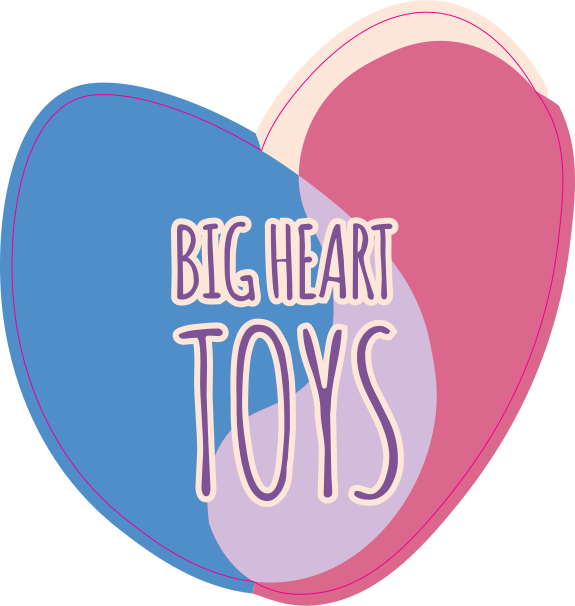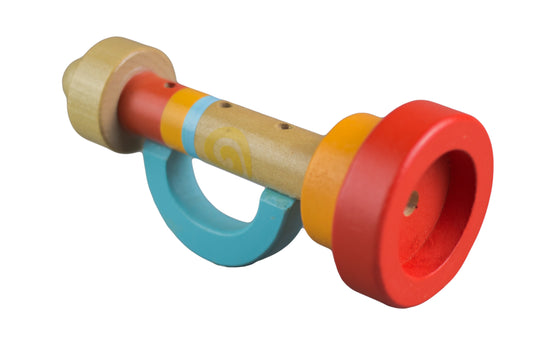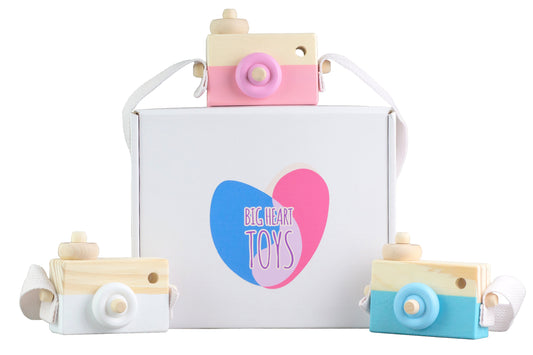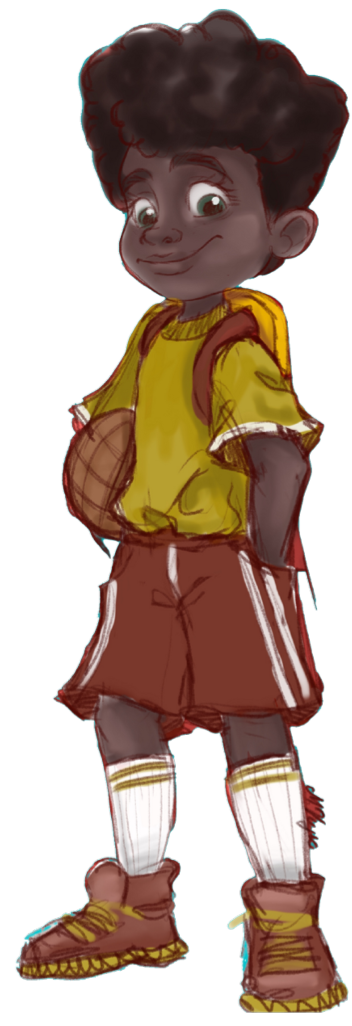Choosing a great gift for a child can be a challenge, but when that child has autism, it becomes even more important to select a gift that is enjoyable and meaningful and beneficial. Children with autism often have unique sensory, social, and cognitive needs that should be considered when gift-giving.
We’ve done the heavy lifting and put together an inclusive list of nine meaningful gift ideas specifically designed to cater to the interests and developmental requirements of children with autism. From imaginative toys and sensory experiences to learning tools that foster growth and engagement, these gift ideas aim to provide joy, comfort, and opportunities for exploration and development.
Whether you’re a parent, family member, friend, or caregiver, this guide will help you discover the perfect gift for a child with autism, making their experience truly special and memorable.
Imaginative Toys and Gifts
Toys and games are so much more than child’s play. Through playtime, children learn about how to navigate social interactions, build fine and gross motor skills, and become more confident. The items below are geared toward building children’s emotional and physical toolset, including providing sensory stimulation and anxiety outlets.
1. Stuffed Animals
Stuffed animals can provide comfort and companionship to children with autism. They also encourage the development of cognitive skills by encouraging the use of imagination and pretend play. This also helps to enhance social skills as children engage with them.
These soft, huggable toys can offer a sense of security and can become a source of emotional support for children. Stuffed animals with certain different textures, like this adorable crochet Teddy Bear or sweet Hippo, are part sensory activity and part calming companion.
Who knew a simple stuffie could serve such a purpose? Fulfilling sensory needs, a sense of imagination, and enhancing social skills in one affordable gift. This is great for children of all ages, as young as a couple of months old.
2. Building Sets
Building sets, such as Legos, wood blocks, or magnetic tiles, offer endless possibilities for creativity and problem-solving. Children with autism often have a remarkable talent for visual and spatial skills, making building sets an excellent choice. These fun toys enhance fine motor skills, hand-eye coordination, and cognitive abilities while stimulating imagination and concentration.
Building and fixing with the Build-Your-Own-Toy Toolbox is wonderful for many growing minds, but children with autism specifically have a lot to gain. The joy of constructing something with their own hands, bringing their ideas to life, and exploring creative possibilities provides a sense of accomplishment. All of which is a valuable tool for growth and development.
Sensory Toys and Gifts

The best sensory toys are more than fun — they also help soothe sensory issues. Weighted blankets, fidget toys, and oral tools can help meet hyposensitivity needs.
3. Kinetic Sand Box
The Kinetic Sand Box provides a unique sensory experience that can be calming and therapeutic for children with autism. Kinetic sand's soft, moldable texture allows children to engage in tactile exploration, promoting sensory integration and relaxation.
Playing with kinetic sand can also enhance finger strength and dexterity. It supports physical, social, and emotional development. Similar to the toys mentioned above, kinetic sand offers a sense of imaginative play and allows them to create and explore.
This gift is usually best for children over 36 months playing supervised.
4. Weighted Blanket
Weighted blankets and toys provide deep pressure stimulation, which can have a calming effect. The gentle pressure from the blanket promotes a sense of security and can help reduce anxiety and improve sleep quality. Choose a weighted blanket appropriate for the size and weight of the little one you’re shopping for to ensure safety and effectiveness.
There are smaller, more portable alternatives to blankets, as well. Weighted mats, like the Kid’s Sensory Gel Maze, target proprioceptive stimulation. It calms the child down and works as a fidget item.
5. Fidget Toys and Poppers

Fidget toys are small handheld objects designed to keep little hands busy and provide sensory input. These toys can help children with autism regulate their emotions and focus their attention. Fidget toys come in a ton of forms, such as fidget spinners, stress balls, or textured objects, allowing children to find the one that suits their preferences and needs.
The most beloved fidget toys include pop it toys, designed to calm overstimulated bodies and give them a simple, mindless task that enriches fine motor skills. They provide both tactile and auditory stimulation.
These toys are typically made of silicone and feature small buttons or bubbles that can be pressed back and forth to create a satisfying “pop” noise and feeling. The popping sensation helps people self-regulate and focus, making them popular in classrooms and the workplace.
6. Squishy Clay
Squishy clay is excellent sensory play for children with autism. It allows them to engage in tactile exploration, develop fine motor skills, and express their creativity. Squishy clay can be molded into various shapes and textures, providing a therapeutic outlet for sensory processing and self-expression.
Squish clay is a great toy for imaginative play and is a fun way to promote bonding and practice social skills. These toys are loved by all and create an opportunity to invite siblings, friends, or family members to play close by in a pressure-free space.
Children with autism can experience social challenges and anxieties that impact their abilities with communication, language development, and interactions with others.
7. Chew Necklace
Chewing can be a sensory response for those with autism. Chewing on things serves as a way to seek and regulate sensory input. If you are shopping for someone you’ve noticed tends to chew on items, a chew necklace is a great alternative.
It should be safe and made out of durable, non-toxic materials and comes in various shapes and textures to suit individual preferences. This thoughtful, practical gift shows an understanding and empathy for individual needs and habits.
Learning Toys

Young children might not think of school as the most exciting place ever, but with these toys, learning can be fun:
8. Books
Books are a valuable learning tool for children and can help improve language and communication skills and foster and instill a love for reading. Books provide bonding time for parents and their children and can teach valuable lessons.
Interactive Books and social stories are excellent for children with autism. They provide structured narratives to help them better understand social situations, expectations, and appropriate responses and behaviors. Books are classic, timeless gifts that can tell meaningful stories again and again.
9. Math Games
Math games can make learning numbers and mathematical concepts enjoyable for children with autism. Numerous math-related toys and games are available that combine visual elements with hands-on activities. These games can help develop numeracy skills, problem-solving abilities, and logical thinking in a fun and engaging way.
Well-designed Math Games find ways to engage fine motor skills and creativity. These games are really a three-in-one, allowing children to learn new mathematical concepts, interact and play with others, and work on fine motor skills.
Conclusion: Wishlist-Worthy
When selecting presents for children, think about their unique needs and preferences. The nine meaningful gift ideas encompass a range of sensory experiences, imaginative play, and educational opportunities.
Being thoughtful in your gift-giving is a way to show love, acceptance, and advocacy for loved ones with autism.
CTA: Shop Big Heart Toys for your autism-friendly toy needs! We’ll do the work to ensure these toys meet the needs of your loved ones so you can do the fun part - shop!
Sources:
Imaginary Companions in Children with Autism Spectrum Disorder | PMC
Sleep and Autism | National Autistic Society
Sensory Seeking Behavior? How to Tame Your Sensory Seeker | NAPA
Sensory Integration in Autism Spectrum Disorders | Autism Research Institute
Gross motor skills: birth to 5 years | Children's Hospital of Richmond at VCU






